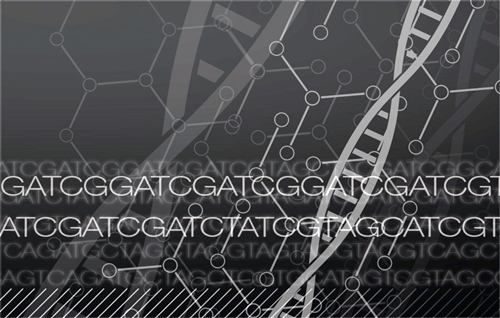23 March 2017. A biotech company and health database center are partnering with drug maker GlaxoSmithKline to produce genomic data on 500,000 individuals for drug discovery. Regeneron Genetics Center in Tarrytown, New York will sequence the genomes of participants in the UK Biobank, for researchers at Regeneron and GSK to identify insights and targets for new therapies, with the first data made publicly available after 9 months.
GSK and Regeneron plan to take advantage of findings from the study to improve the odds of finding effective medicines against disease. The companies cite data showing 90 percent of experimental drugs fail to advance past clinical trials testing new therapies for safety and efficacy, due in many cases to a failure to understand the complete connections between the drugs and the molecular nature of the diseases they treat. Medications developed with this understanding, say the companies, have higher success rates.
Regeneron Genetics Center is a subsidiary of the biotechnology company Regeneron that applies high-throughput genomic sequencing to discovery of new treatments. The center sequences exomes, that cover the exons, or protein coding regions of the human genome. Exomes account for only a small percentage of base pairs in the genome, but they represent about 85 percent of all disease causing mutations. The Regeneron center then matches results of the whole exome sequencing to de-identified medical records, with more than 150,000 of those records now stored.
In this collaboration, Regeneron will conduct genetic sequencing of the 500,000 volunteers in the U.K. Biobank membership. U.K. Biobank, in Stockport, stores health and wellness data of the volunteers, including blood and other specimens, for medical research studies by academic labs and industry. The organization says its data are used for diagnostics and treatment of a wide range of diseases, including, cancer, heart disease, stroke, diabetes, and arthritis, as well as depression and some forms of dementia. All of the data provided to researchers have personal identification removed.
Under the agreement, Regeneron and GSK will sequence the genomes of 50,000 individuals sampled from the U.K. Biobank volunteers, with the companies committing undisclosed funding for the analysis. Regeneron and GSK will have first access to the data, with the analysis completed by the end of 2017, and the results provided back to U.K. Biobank after 9 months. The partners say the findings will also be submitted for publication in scientific journals.
Sequencing of the remaining 450,000 UK Biobank participants is expected to take 3 to 5 years. But even with data from 50,000 individuals, it’s possible to derive meaningful results.
As reported by Science & Enterprise in December 2016, Regeneron Genetics Center analyzed genetic data from 50,726 clients of the Geisinger Health System in Pennsylvania, which when combined with data from electronic health records, revealed that a segment of the Geisinger population tested has familial hypercholesterolemia, a blood disorder causing high cholesterol levels. When compared to data in electronic health records, the findings show only about a quarter of the records offer any indication of familial hypercholesterolemia, which suggests their conditions would have gone unnoticed without results from genetic tests.
More from Science & Enterprise:
- Heart Assoc, Amazon Partner on Precision Medicine Data
- Alliance to Study Brain Tumor Precision Diagnostics
- Knowledge Bank Tapped for Precision Cancer Treatments
- Scripps, Pfizer Collaborate on DNA-Coded Drug Discovery
- Illumina Partnering with IBM, Phillips on Genomics Tools
* * *


 RSS - Posts
RSS - Posts
You must be logged in to post a comment.